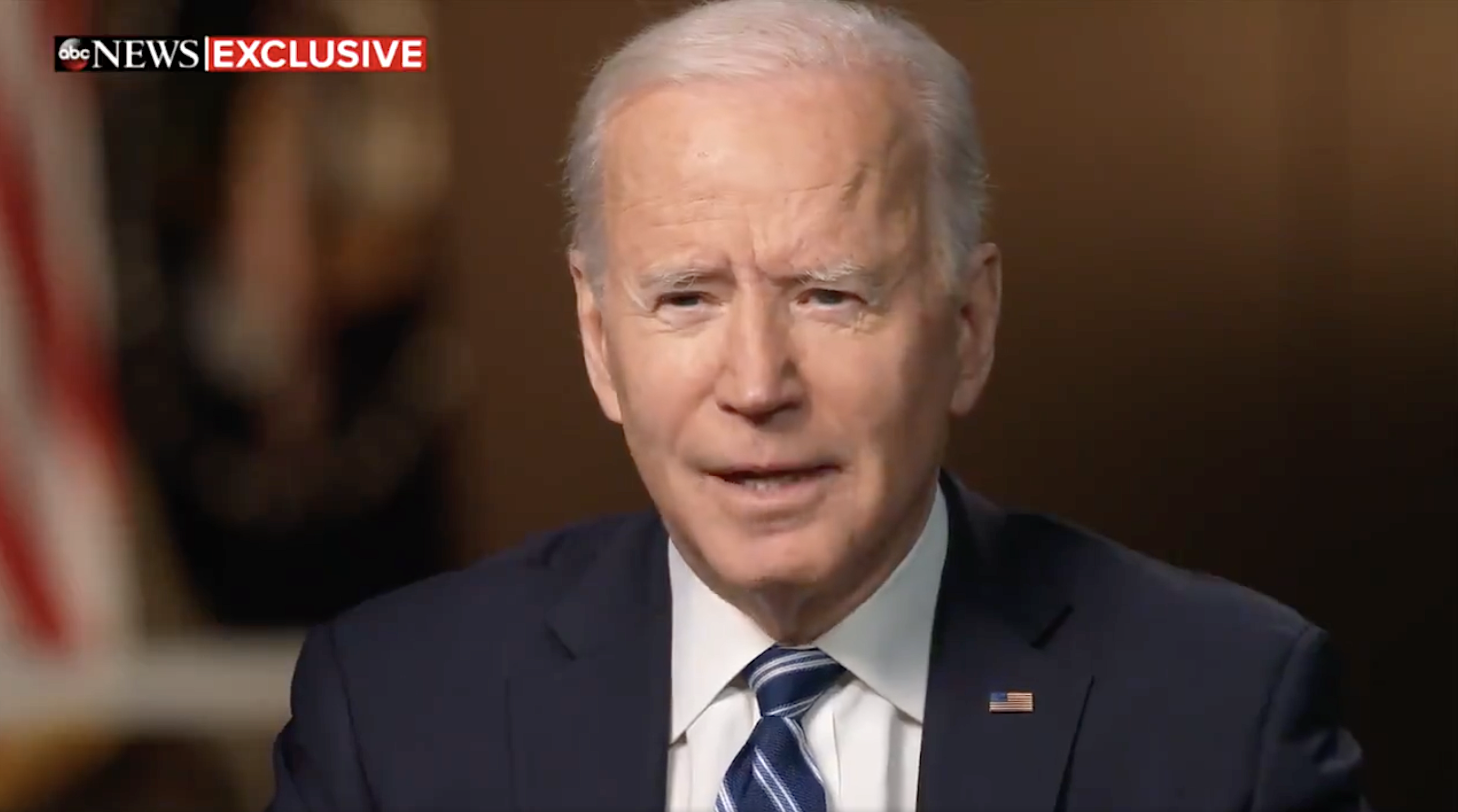Biden endorses changing Senate rules to require a 'talking filibuster,' like 'back in the old days'


A free daily email with the biggest news stories of the day – and the best features from TheWeek.com
You are now subscribed
Your newsletter sign-up was successful
President Biden for the first time Tuesday publicly endorsed changing the Senate's filibuster rules so if a senator wanted to block a bill, he or she would have to earn it.
ABC News' George Stephanopoulos broached the topic in an interview segment released Tuesday night, asking Biden if he will "have to choose between preserving the filibuster and advancing your agenda." Biden said yes, but "I don't think that you have to eliminate the filibuster — you have to do it what it used to be when I first got to the Senate, back in the old days," when "you had to stand up and command the floor, you had to keep talking" and "work for the filibuster."
Stephanopoulos followed up to make sure Biden is "for bringing back the talking filibuster," and Biden said yes, he is. "That's what it was supposed to be," he said. "It's getting to the point where, you know, democracy is having a hard time functioning."
The Week
Escape your echo chamber. Get the facts behind the news, plus analysis from multiple perspectives.

Sign up for The Week's Free Newsletters
From our morning news briefing to a weekly Good News Newsletter, get the best of The Week delivered directly to your inbox.
From our morning news briefing to a weekly Good News Newsletter, get the best of The Week delivered directly to your inbox.
Senate Democrats, who narrowly lead the 50-50 chamber, would need every member of their caucus to change the filibuster rules, and several moderate Democrats — including Sen. Joe Manchin (W.Va.) and Kyrsten Sinema (Ariz.), plus Biden — oppose eliminating the filibuster altogether. But Manchin and other Democrats, most recently Senate Majority Whip Dick Durbin (D-Ill.), have voiced support for switching back to a talking filibuster.
"The filibuster allows a senator to block a bill by refusing to yield the floor unless at least 60 colleagues vote to end the debate and proceed to a vote," The Washington Post explains. "In recent years, the objecting senator has not had to actually speak for hours — instead, simply announcing an intent to filibuster is enough to block the bill." Currently, NBC News adds, "the onus is on the majority to find 60 votes to advance legislation; if it falls short, it stalls. A talking filibuster would shift the onus to the minority to hold the floor and speak incessantly until it gives up or the majority pulls the bill."
A free daily email with the biggest news stories of the day – and the best features from TheWeek.com
Peter has worked as a news and culture writer and editor at The Week since the site's launch in 2008. He covers politics, world affairs, religion and cultural currents. His journalism career began as a copy editor at a financial newswire and has included editorial positions at The New York Times Magazine, Facts on File, and Oregon State University.
-
 Why is the Trump administration talking about ‘Western civilization’?
Why is the Trump administration talking about ‘Western civilization’?Talking Points Rubio says Europe, US bonded by religion and ancestry
-
 Quentin Deranque: a student’s death energizes the French far right
Quentin Deranque: a student’s death energizes the French far rightIN THE SPOTLIGHT Reactions to the violent killing of an ultra-conservative activist offer a glimpse at the culture wars roiling France ahead of next year’s elections.
-
 Secured vs. unsecured loans: how do they differ and which is better?
Secured vs. unsecured loans: how do they differ and which is better?the explainer They are distinguished by the level of risk and the inclusion of collateral
-
 Labor secretary’s husband barred amid assault probe
Labor secretary’s husband barred amid assault probeSpeed Read Shawn DeRemer, the husband of Labor Secretary Lori Chavez-DeRemer, has been accused of sexual assault
-
 Trump touts pledges at 1st Board of Peace meeting
Trump touts pledges at 1st Board of Peace meetingSpeed Read At the inaugural meeting, the president announced nine countries have agreed to pledge a combined $7 billion for a Gaza relief package
-
 NIH director Bhattacharya tapped as acting CDC head
NIH director Bhattacharya tapped as acting CDC headSpeed Read Jay Bhattacharya, a critic of the CDC’s Covid-19 response, will now lead the Centers for Disease Control and Prevention
-
 Witkoff and Kushner tackle Ukraine, Iran in Geneva
Witkoff and Kushner tackle Ukraine, Iran in GenevaSpeed Read Steve Witkoff and Jared Kushner held negotiations aimed at securing a nuclear deal with Iran and an end to Russia’s war in Ukraine
-
 Pentagon spokesperson forced out as DHS’s resigns
Pentagon spokesperson forced out as DHS’s resignsSpeed Read Senior military adviser Col. David Butler was fired by Pete Hegseth and Homeland Security spokesperson Tricia McLaughlin is resigning
-
 Judge orders Washington slavery exhibit restored
Judge orders Washington slavery exhibit restoredSpeed Read The Trump administration took down displays about slavery at the President’s House Site in Philadelphia
-
 Hyatt chair joins growing list of Epstein files losers
Hyatt chair joins growing list of Epstein files losersSpeed Read Thomas Pritzker stepped down as executive chair of the Hyatt Hotels Corporation over his ties with Jeffrey Epstein and Ghislaine Maxwell
-
 Judge blocks Hegseth from punishing Kelly over video
Judge blocks Hegseth from punishing Kelly over videoSpeed Read Defense Secretary Pete Hegseth pushed for the senator to be demoted over a video in which he reminds military officials they should refuse illegal orders
